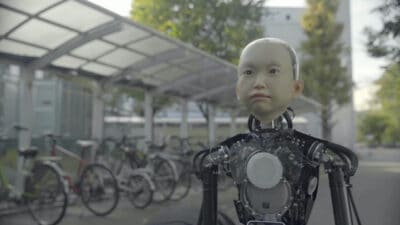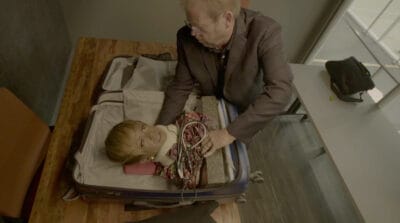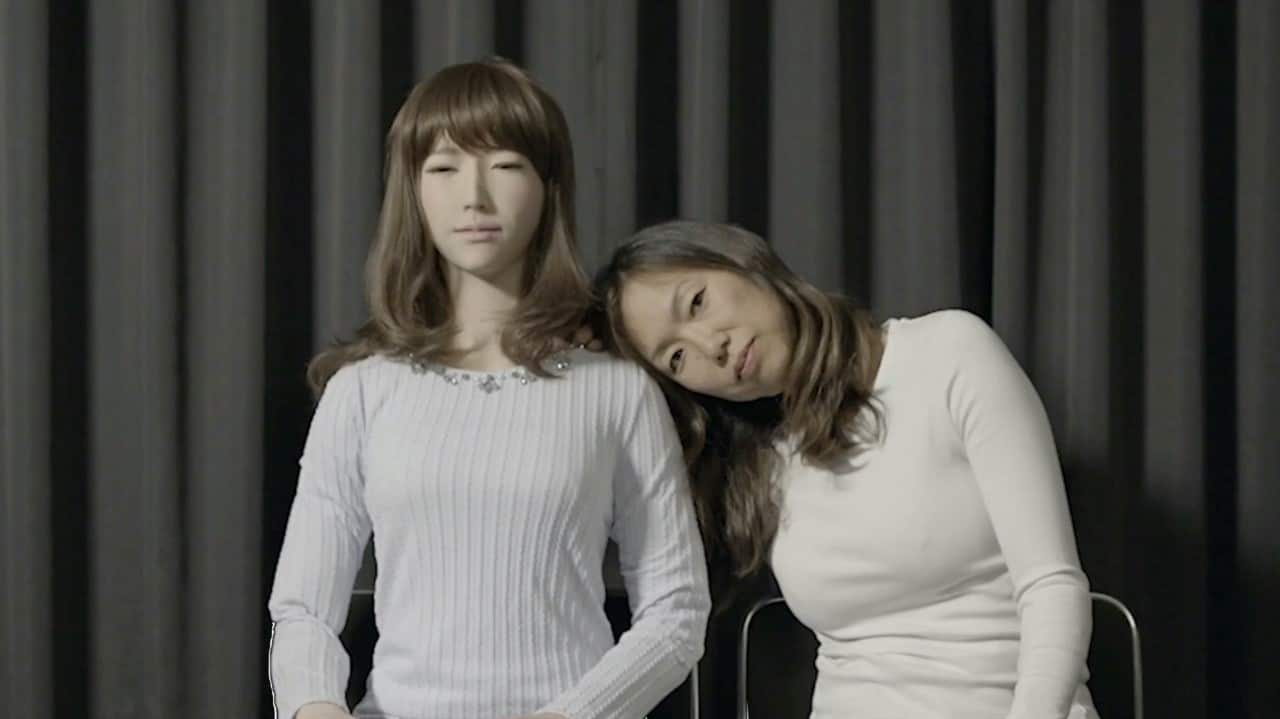Award-winning Toronto filmmaker Ann Shin travelled the world to find the most fascinating stories on the latest artificial intelligence technology. On her quest, she also explores what it means to be human, constantly asking: can humans be duplicated by AI? If so, what are the impacts? Her powerful documentary, A.rtificial I.mmortality, opened Hot Docs 2021 to great acclaim, and arrives to TIFF Bell Lightbox this weekend.
Ann’s curiousity and concern about AI began when she started examining and questioning the effects of everyday technology in her home. “We’re distracted by the gadgets, like a shiny new car, and we’re not thinking about where we are heading, what’s the horizon,” she tells me over a Zoom call.

Smart watches tell us how many steps we’ve taken, algorithms feed us exactly what we want, Google can identify photos of us taken over a decade ago—things are already freakier than we could have imagined. If technology is evolving and adapting this quickly right in front of our eyes, what does it look like in state of the art labs? What Ann discovers will blow your mind.
“AI technology is leading us to a place where AI doesn’t just outthink humans, it can emote, it can have intuition,” says Ann, who discovered that AI was being created to allow humans to live forever (sort of). On her journeys, to labs in Japan, America, and right here in Toronto at Ryerson University, Ann met with AI avatars, sat with them, conversed with them—including an AI clone of herself. Watching Ann interact with her clone is far out, but also a viable option, for those who have the money and desire to invest in AI.
In the process of making her film, Ann’s father developed Dementia. “When it got to the point where he couldn’t remember my mother I was gobsmacked and heartbroken…because my father was the storyteller in our family and that’s where I get the storytelling impulse from,” Ann shares, admitting that his illness compelled her to dig deeper. “For him to lose his stories was like losing an essential part of him and it made me wonder what is it that makes us us? What is essential to who we are?”
Her father’s progressive condition is a driving force behind Ann’s investigation. In one segment, Dr. Hussein Ramadam, a subject Ann interviews, explains how intuition is essentially an aggregate of our experiences and memories. “If you feed all that information into a computer, into an AI system, the AI system can have intuitive responses to a situation as well. In the age of AI, our data is our body and our minds,” says Ann, reflecting on what it means when a machines instincts and memory“AI technology is leading us to a place where AI doesn’t just outthink humans, it can emote, it can have intuition,” function better than our own minds.
If we can build an avatar that doesn’t just know our stories, but can think like us, respond like us, and look like us, are we able to live beyond our death? Would our loved ones be satisfied chatting with an AI version of ourselves, long after our passing? Could our avatar provide comfort? Retain and share our memories better than we ever could? Are we replaceable? This is a documentary that raises many unsettling questions.

A.rtificial I.mmortality is a film that will leave you shaken up, with feelings of excitement and fear. But even Ann, after all she has witnessed and learned, is hopeful that the technology has the potential to advance us, and not overtake us. “I would say that I have cautious optimism,” she says, with a nervous laugh. “One of the things I hope the film will do, is help people look to the horizon so that we don’t create a future that we’re going to complain about. Technology is part of our lives, but we can choose how to develop it. We have to be mindful, and speak up. We can’t just let companies dictate.”
A.rtificial I.mmortality opens at TIFF Bell Lightbox on Sept 24. Parts of this interview first ran in April 2021.



 Follow Us On Instagram
Follow Us On Instagram
